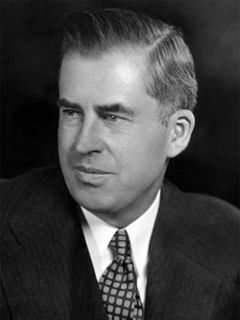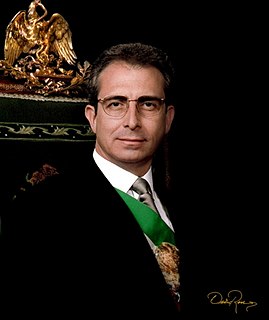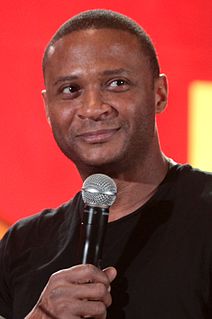A Quote by Kenneth Arrow
Markets are not, in my opinion, a full solution to any problem. The obvious problem they don't meet is the concerns of the welfare of individuals who may get lost in the operation of the system - the distributional question. We've seen this growing as we go further and further toward a market ideology in the United States and the United Kingdom. We've seen a decline in the welfare of the working poor, leaving aside any other pathologies, just the working poor, a very distinct increase at the very top levels.
Quote Topics
Any
Aside
Concerns
Decline
Distinct
Full
Further
Get
Go
Growing
Ideology
In My Opinion
Increase
Individuals
Just
Kingdom
Leaving
Levels
Lost
Market
Markets
May
Meet
Obvious
Operation
Opinion
Other
Poor
Problem
Question
Seen
Solution
States
System
Top
Toward
United
United Kingdom
United States
Very
Welfare
Working
Related Quotes
Welfare now erodes work and family and thus keeps poor people poor. Accompanying welfare is an ideology - sustaining a whole system of federal and state bureaucracies - that also operates to destroy their faith. The ideology takes the form of false theories of discrimination and spurious claims of racism and sexism as the dominant forces in the lives of the poor.
Here in Brussels, we did everything to accommodate David Cameron's concerns. My collaborators and I personally spent countless days and nights negotiating an agreement that was fair toward the United Kingdom and toward the other 27 Member States. I was then very surprised to see that this settlement played no role whatsoever in the campaign in the United Kingdom. At the same time it is hardly surprising.
There is a sense in which the United States ambassador speaks to the United States, as well as for the United States. I have always seen my role as a thermostat rather than a thermometer. So I'm going to be actively working... for my own concerns. I have always had people advise me on what to say, but never on what not to say.
There is a sense in which the United States Ambassador speaks to the United States, as well as for the United States. I have always seen my role as a thermostat, rather than a thermometer. So I'm going to be actively working... for my own concerns. I have always had people advise me on what to say, but never on what not to say.
I think that there is only one way to science - or to philosophy, for that matter: to meet a problem, to see its beauty and fall in love with it; to get married to it and to live with it happily, till death do ye part - unless you should meet another and even more fascinating problem or unless, indeed, you should obtain a solution. But even if you do obtain a solution, you may then discover, to your delight, the existence of a whole family of enchanting, though perhaps difficult, problem children, for whose welfare you may work, with a purpose, to the end of your days.
One doesn't like instabilities in markets; they may be damaging, but probably not fatal, as the October '87 crash showed. It turned out to be essentially inconsequential. So if that's true, I'm not very worried about the welfare of those who are investing any more than I am about the welfare of those who go into casinos.
What we need to do first is to find out how big the migration problem is and what the economic consequences of it are for the United States and Mexico. We hear a lot of extravagant numbers and claims made, but very few hard facts. We don't really know what, if any, burdens illegal migrants impose on the US economy or the social welfare apparatus, and those issues must be clarified.
The other General Welfare Clause is in the first of the authorities given to the Congress and it's not a grant, it's a restriction. By which I mean it doesn't say Congress can legislate for the general welfare, it means that everything Congress must do has to enhance the general welfare of the United States of America. It can't grant things to individuals, it can only legislate for the government.
I see the war problem as an economic problem, a business problem, a cultural problem, an educational problem - everything but a military problem. There's no military solution. There is a business solution - and the sooner we can provide jobs, not with our money, but the United States has to provide the framework.
Somehow, the fact that more poor people are on welfare, receiving more generous payments, does not seem to have made this country a nice place to live - not even for the poor on welfare, whose condition seems not noticeably better than when they were poor and off welfare. Something appears to have gone wrong; a liberal and compassionate social policy has bred all sorts of unanticipated and perverse consequences.
[People] have seen the credit market seize up. They're worried about money market funds, although the latest proposition from government should take care of that. They've seen eight percent of the bank deposits in the United States get moved very skillfully, I might say, within the last couple of weeks from institutions that they thought were fine a few months ago to other institutions. They are not wrong to be worried.
When you authorised Congress to borrow money, and to contract debts, for carrying on the late war, you could not intend to abridge them of the means of paying their engagements, made on your account. You may observe that their future power is confined to provide common defence and general welfare of the United States. If they apply money to any other purposes, they exceed their powers. The people of the United States who pay, are to be judges how far their money is properly applied.


































